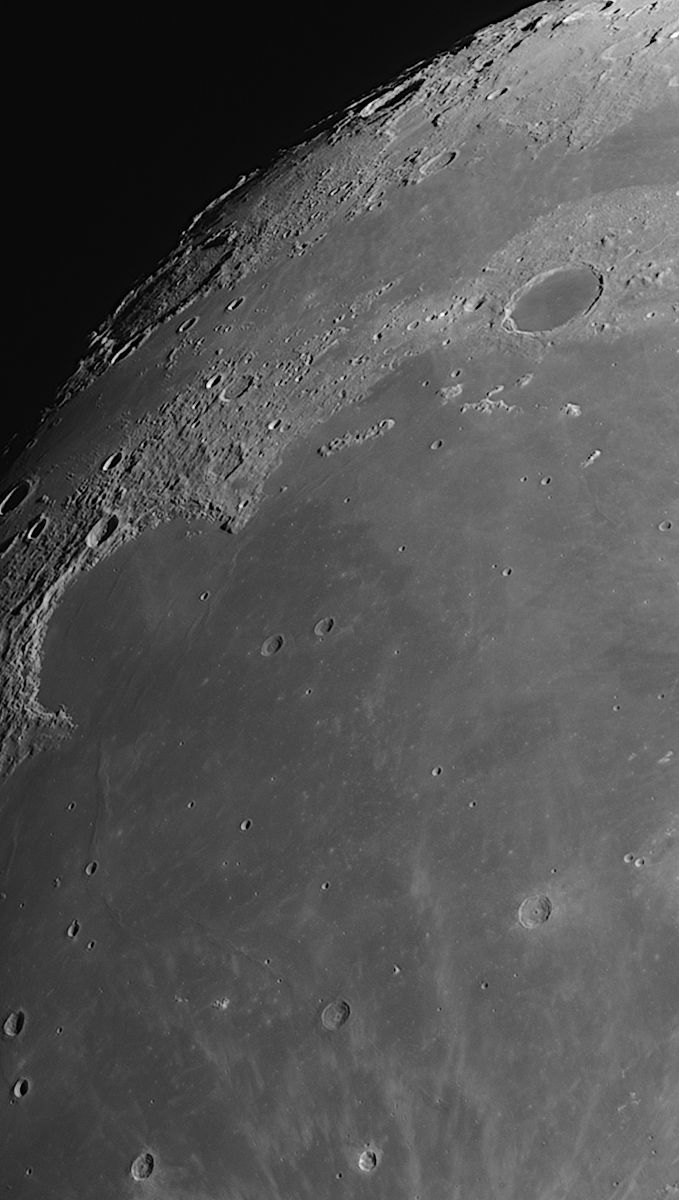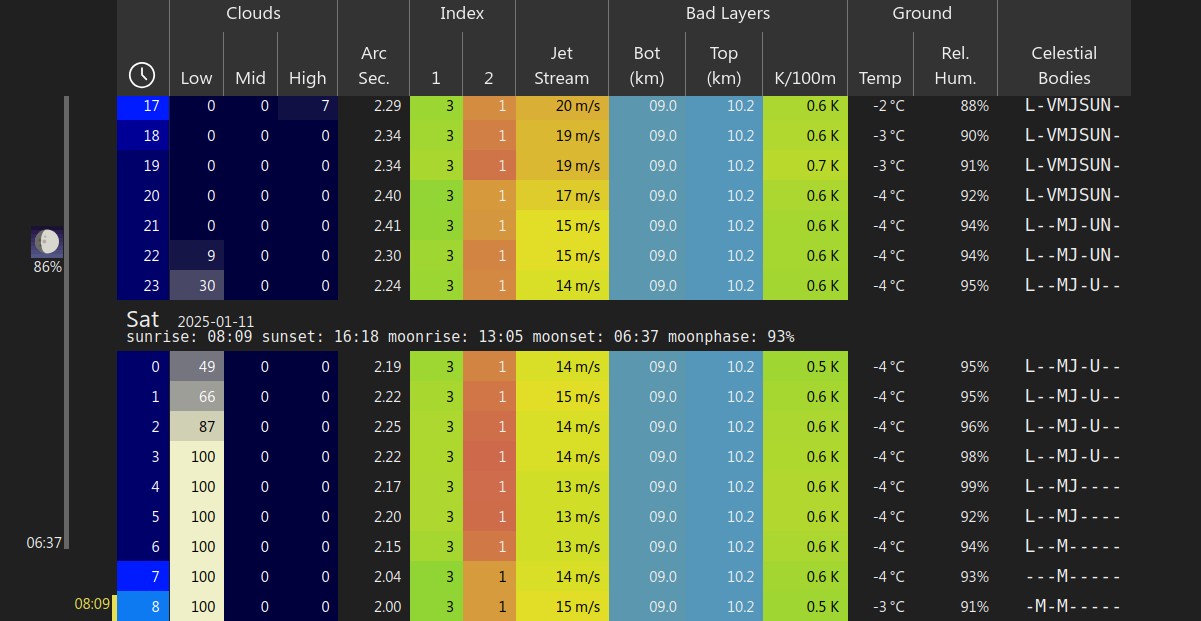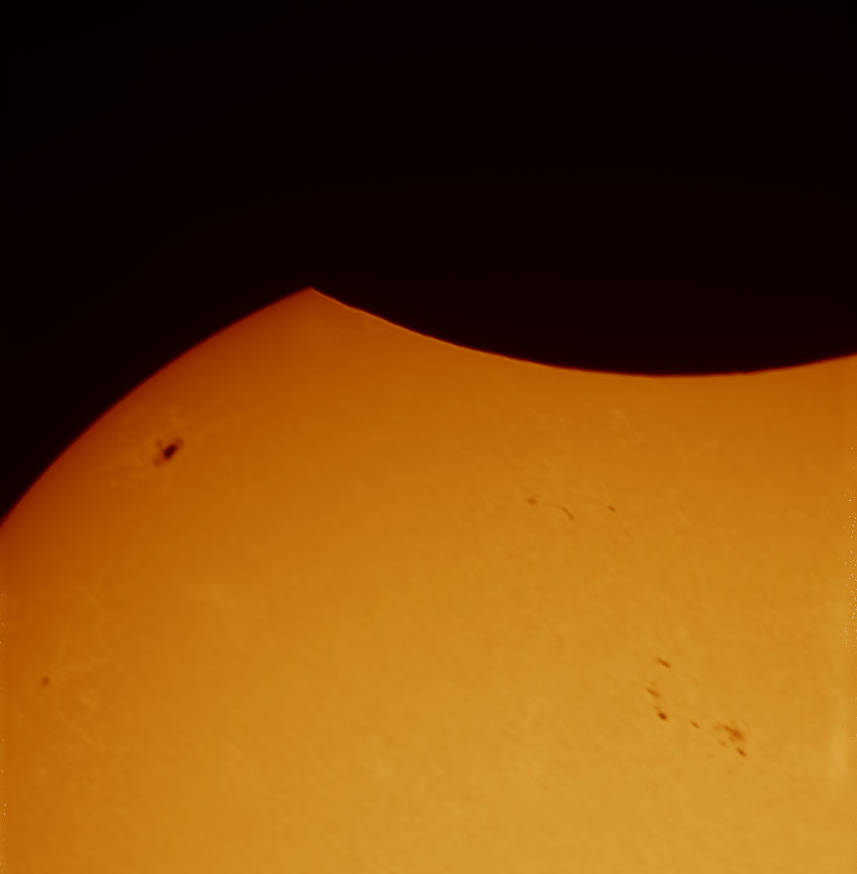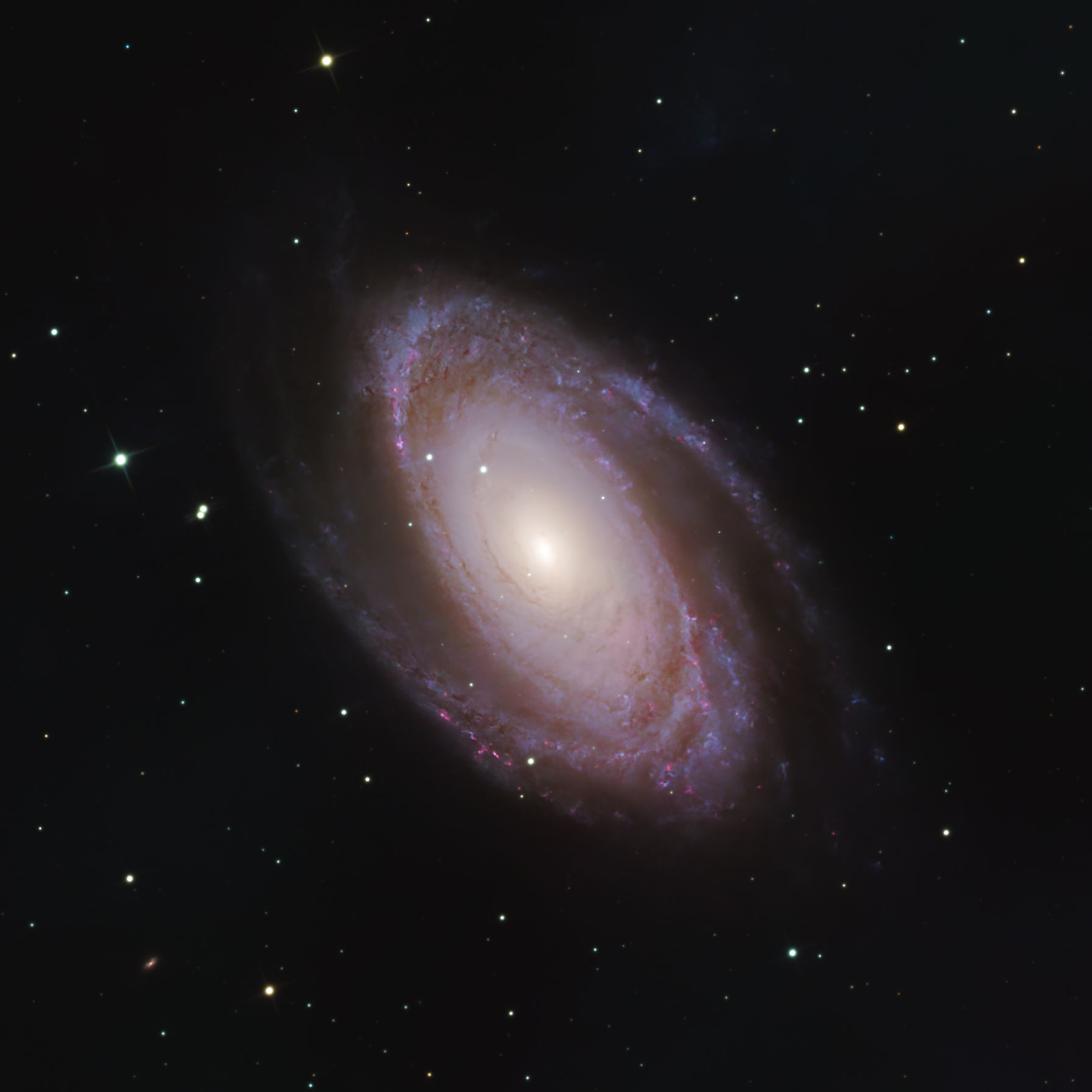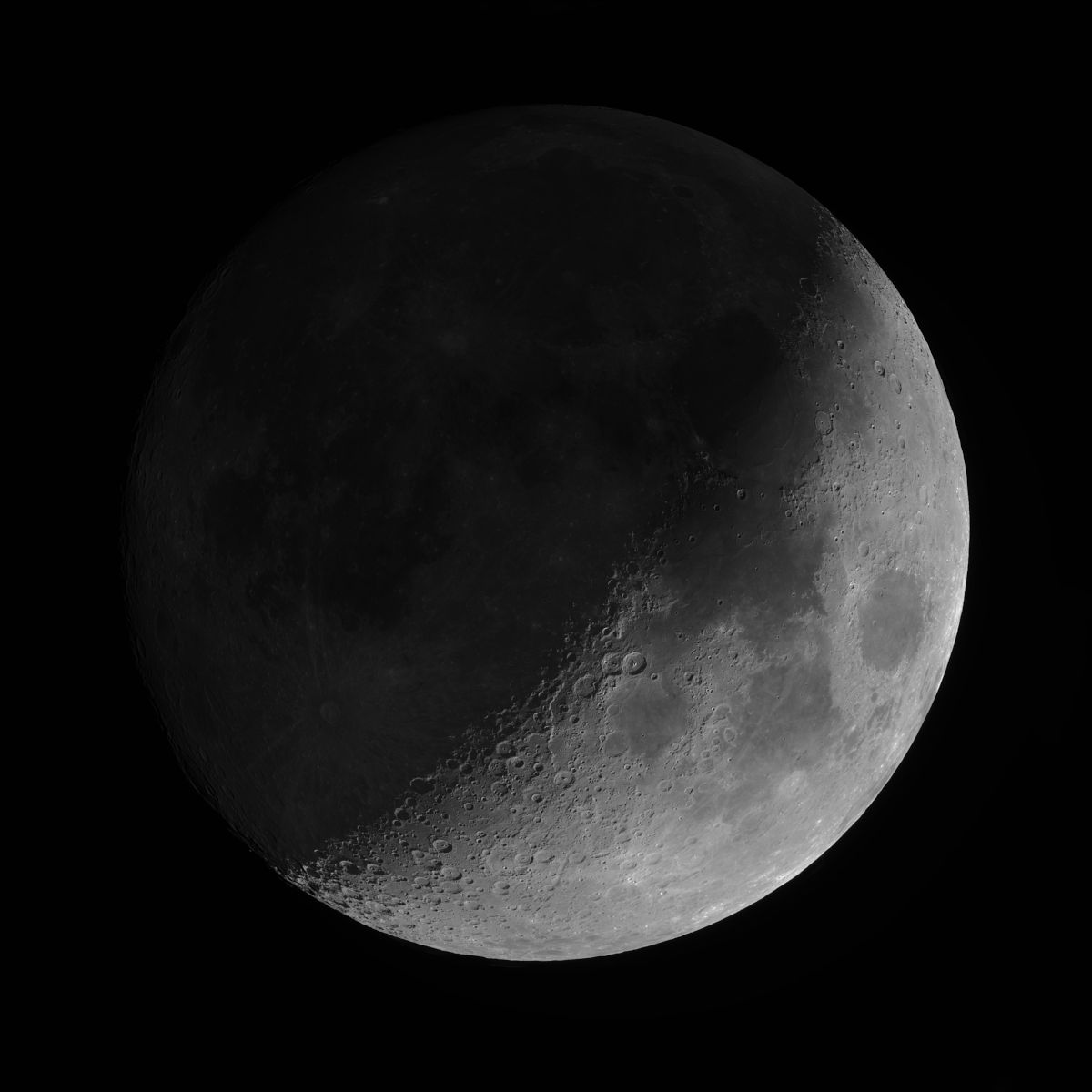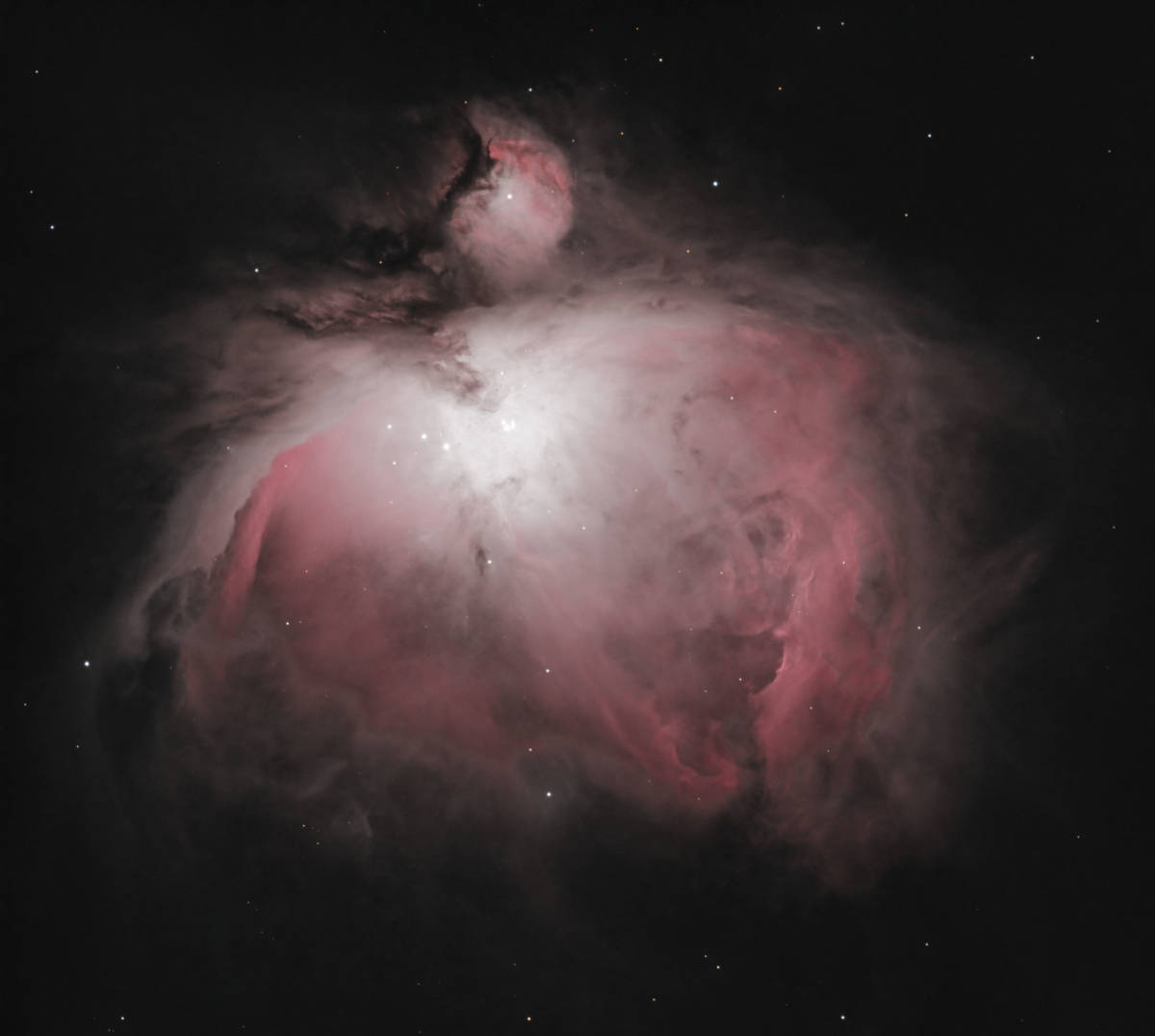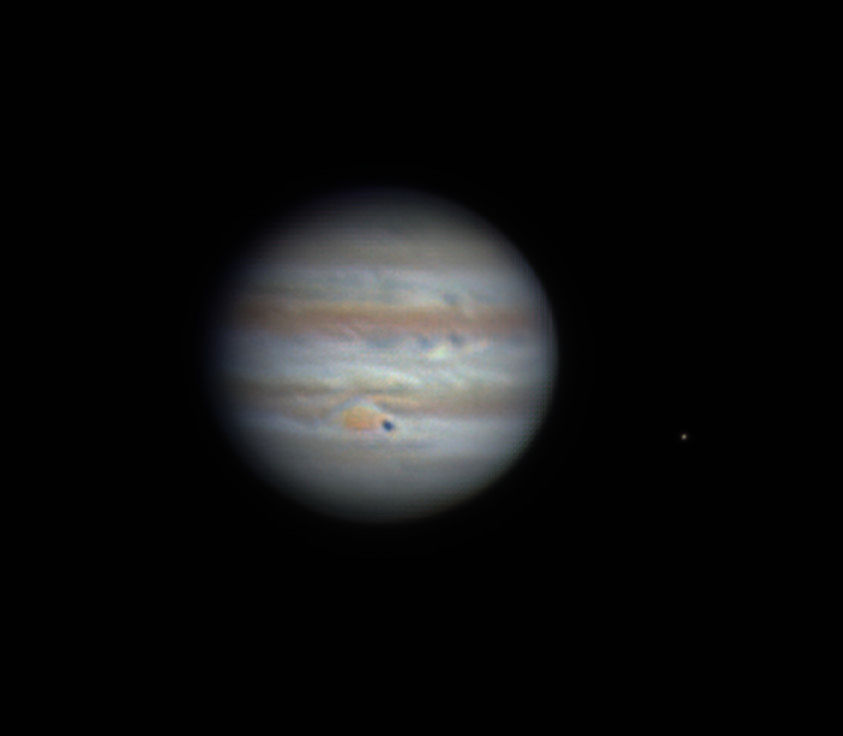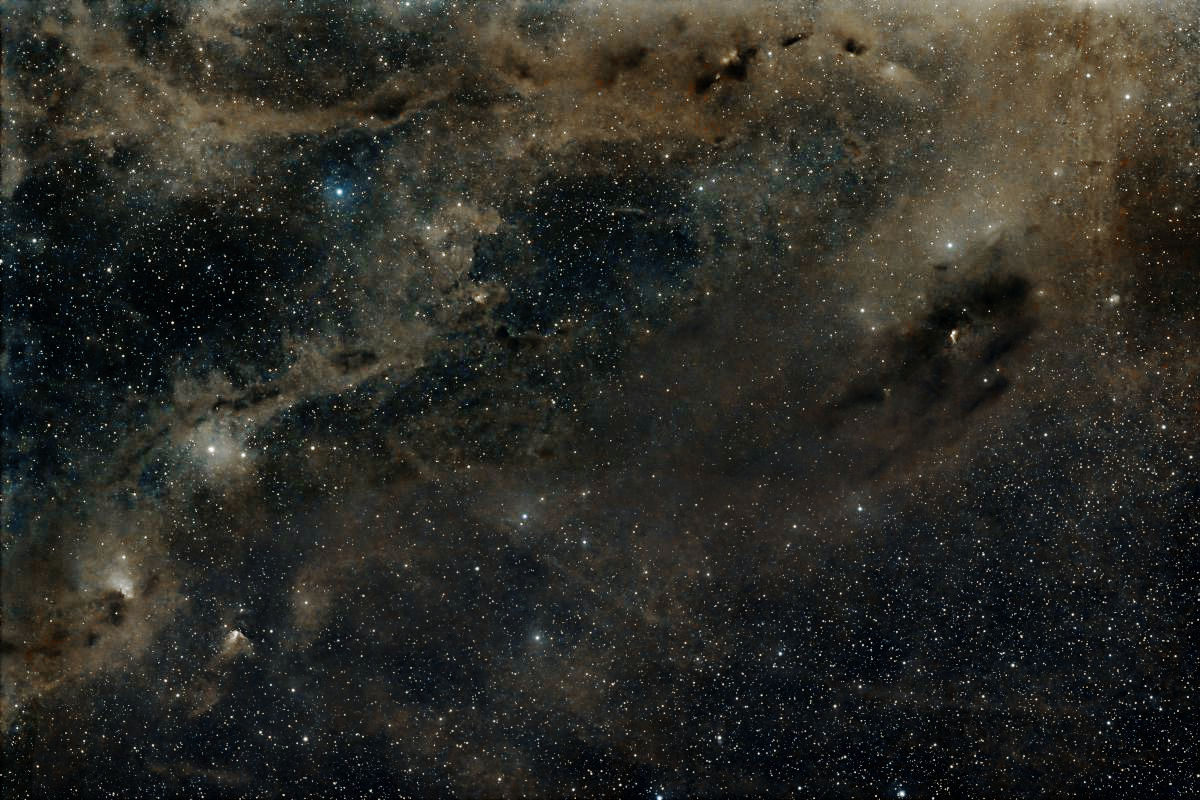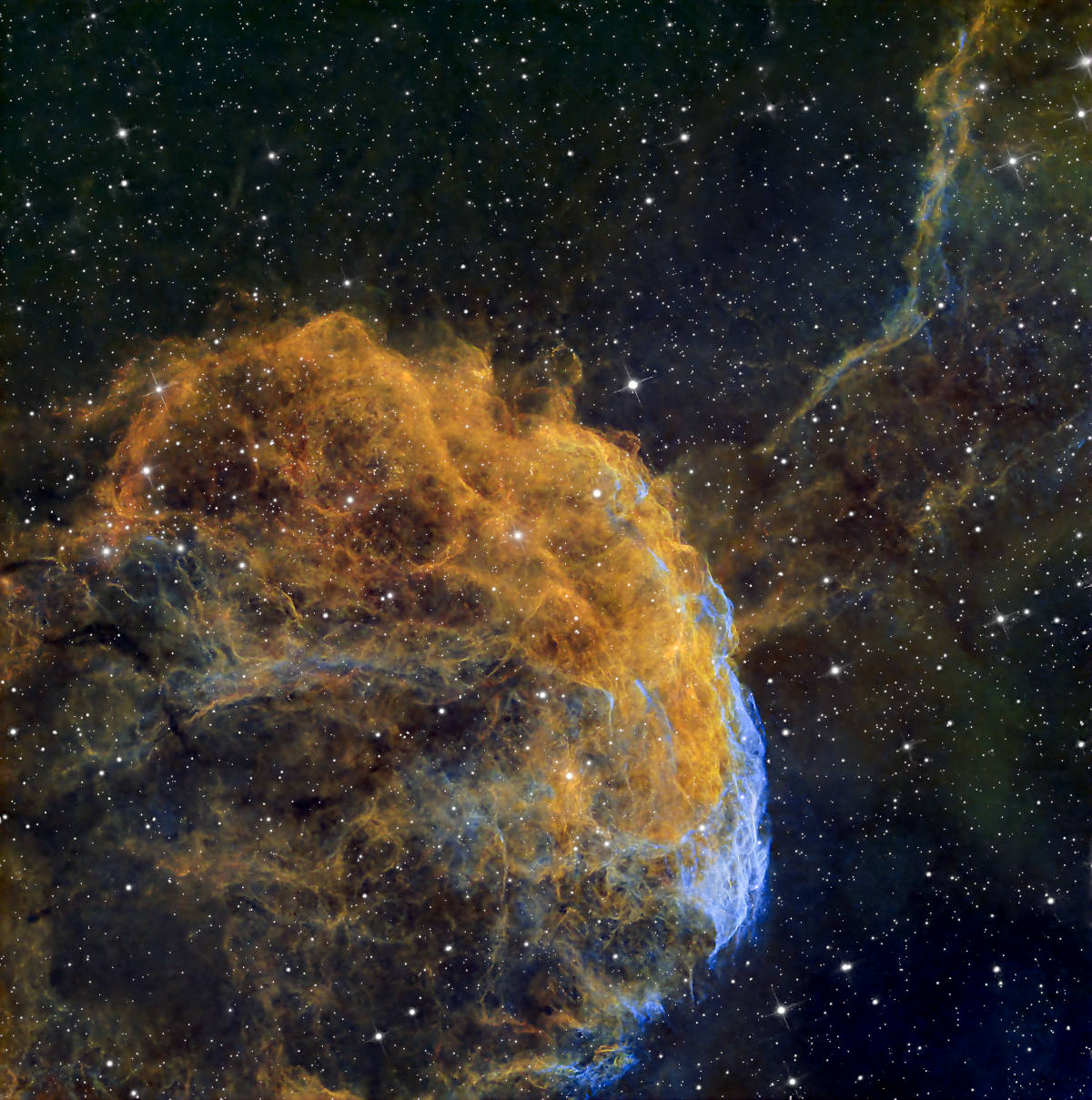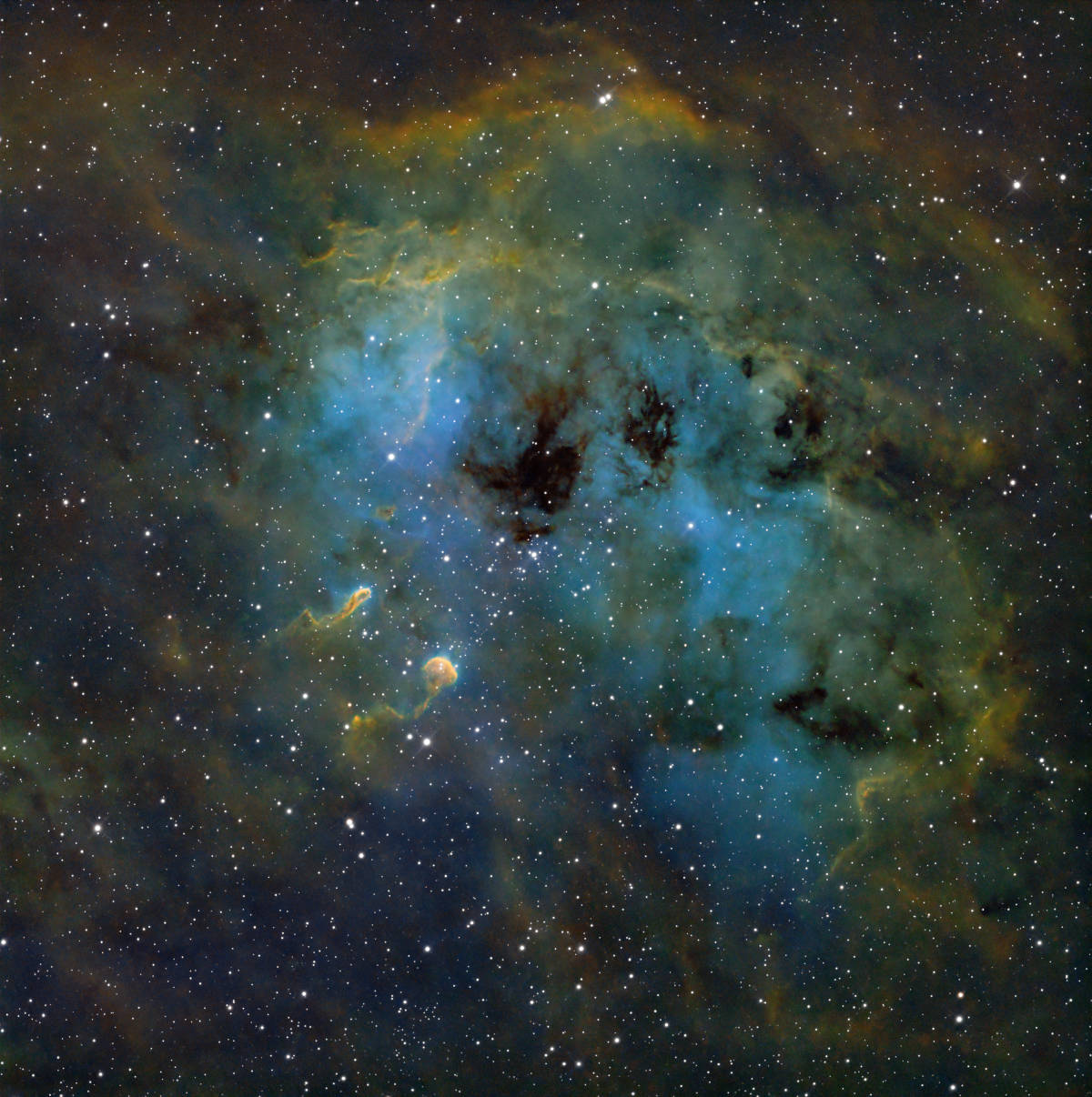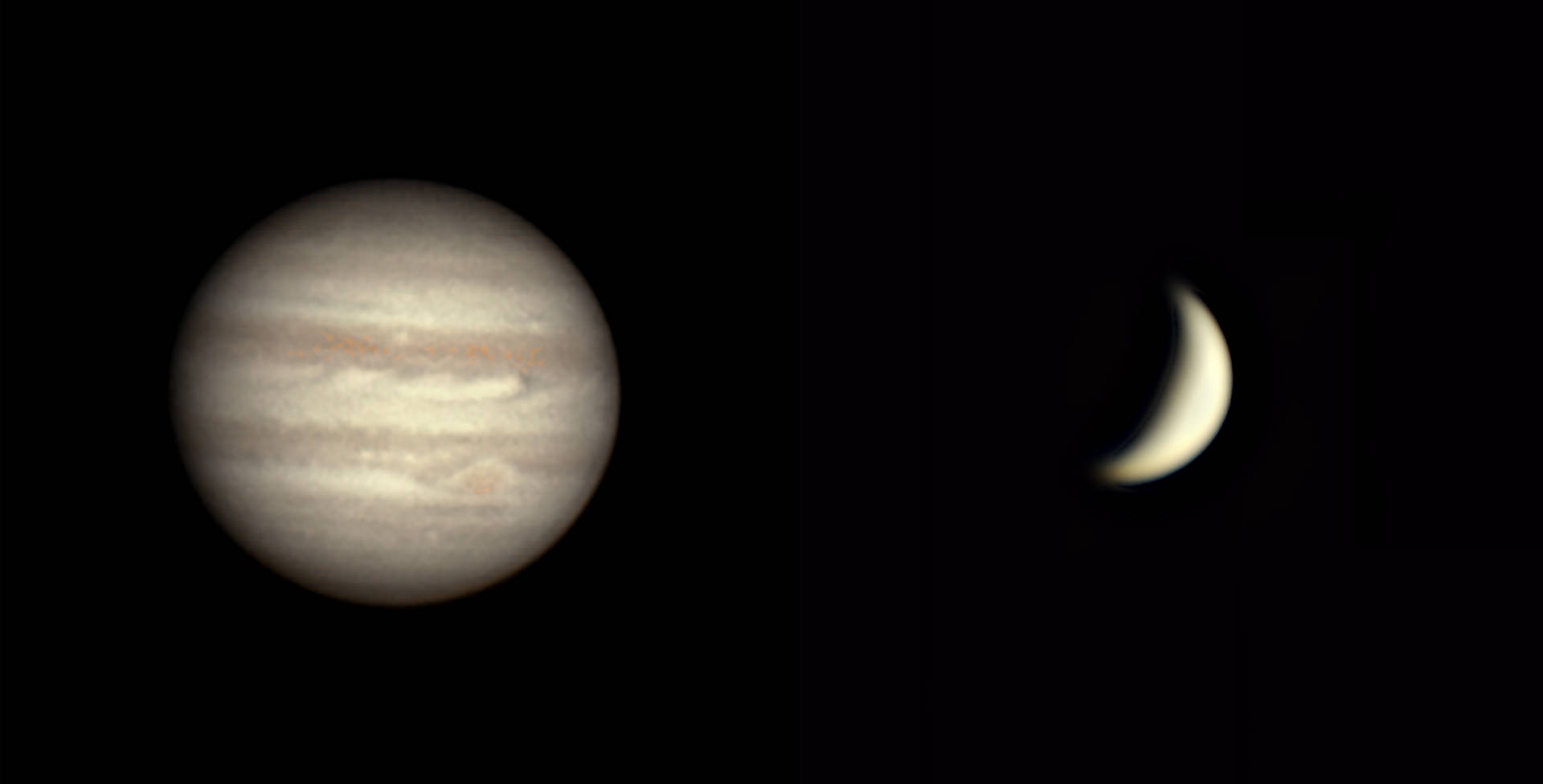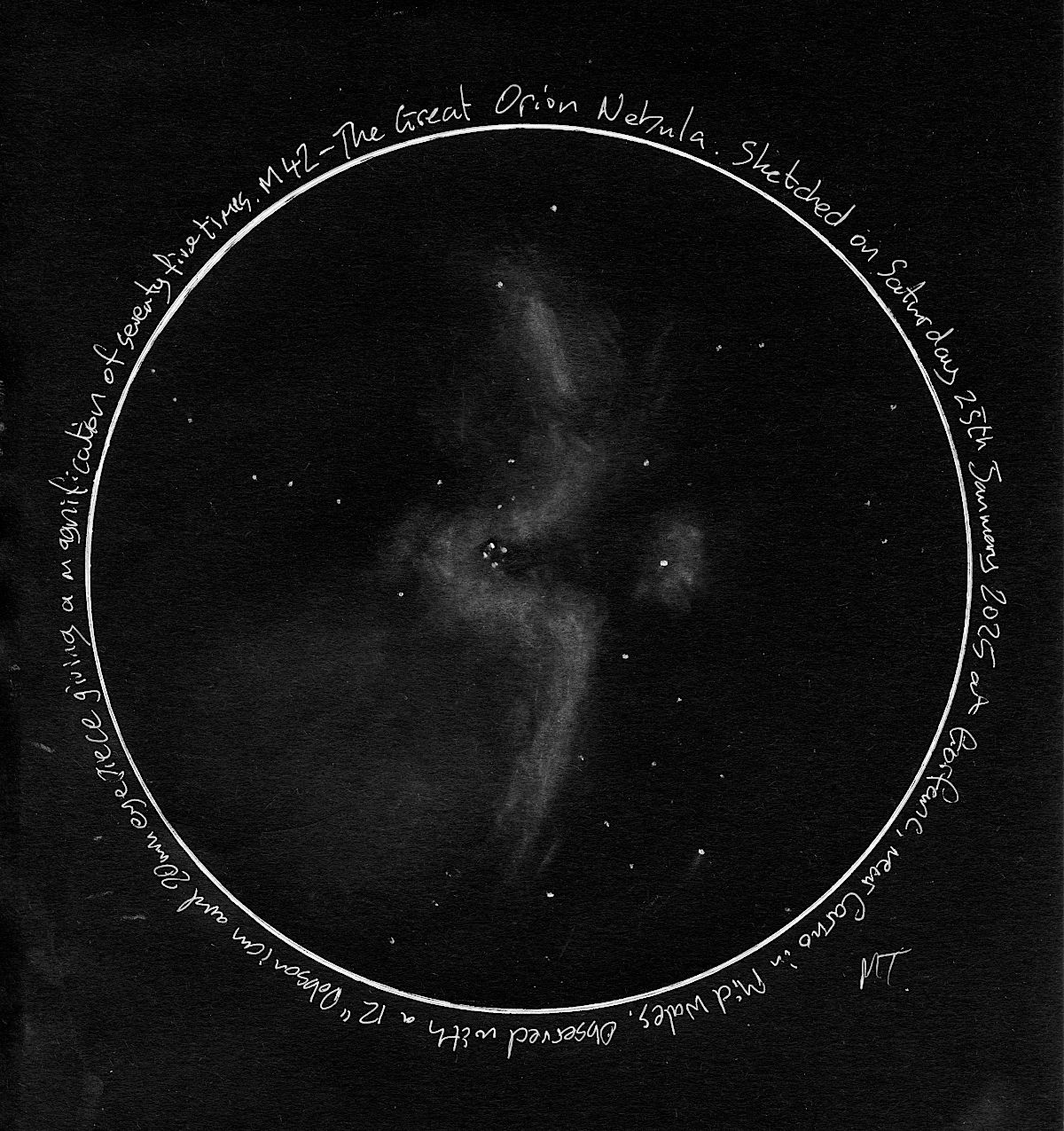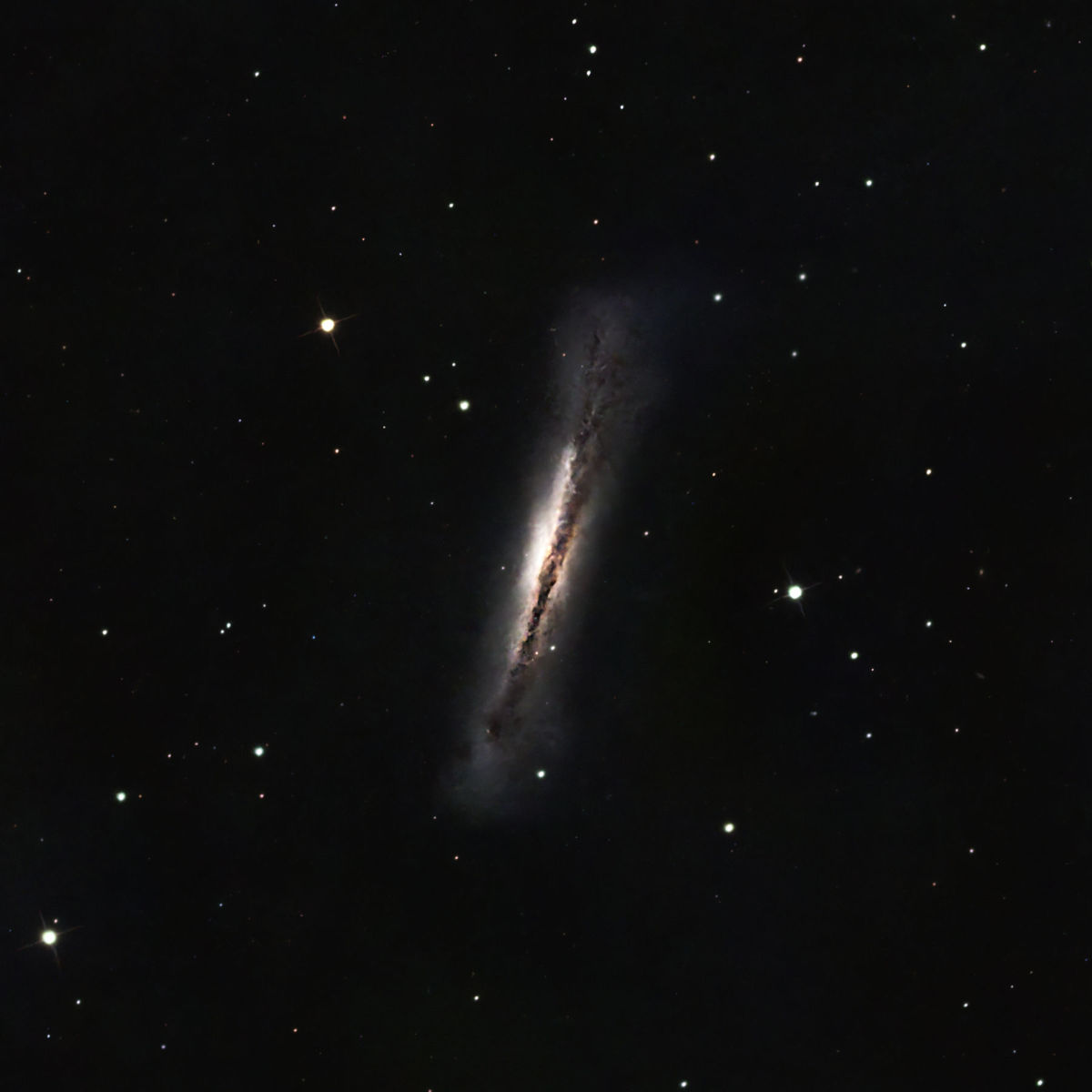Day 11 Moon
Views of the day 11 terminator
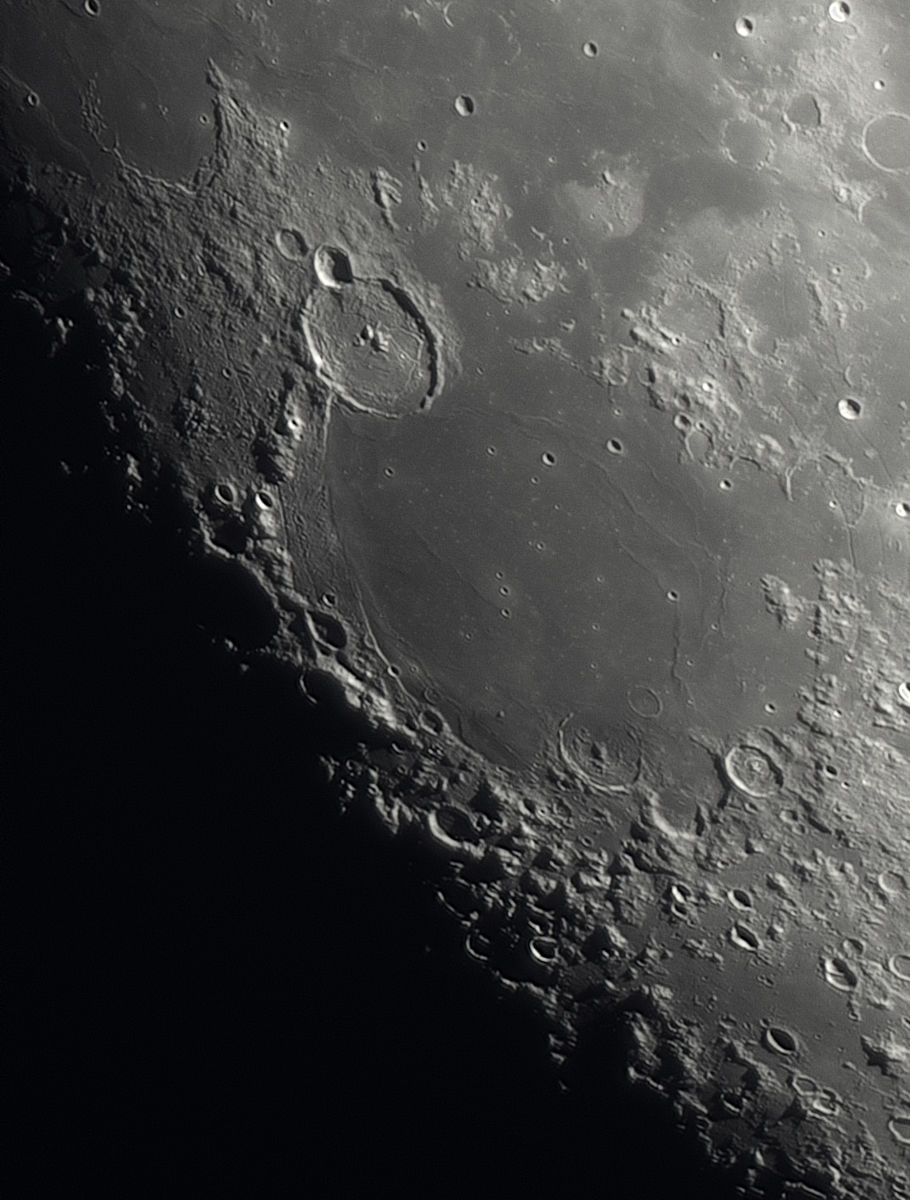
Details
- Rig: ZWO ASI662MC + Stellalyra 6in Classical Cassegrain + HEQ5 Pro
- Software: Sharpcap v4.1
- Filters: None
- Integration time: Lucky imaging: best 25% frames from 1000 video frames.
The ASI662MC has small 2.9 micron pixels which give excellent resolution, especially in a long scope such as the CC. The 10th Jan was the stablest and most transparent evenig we have had for weeks if not months and the Moon was really high at over 65° in altitude. The 12th was lkess clear but still gave a really good view of the full Moon.
These images are processed in Sharpcap which I have discovered in version 4.1 allows you to load in SER video files after the event and view/stack them on the fly with all the sharpening and denoising functions of AutoStakkert and Registax in one which you can see and judge as you go. You can then just export the result to TIF or PNG. I have done a comparison of this method of making planetary images with the “traditional” way of running through AutoStakkert and Registax and can find very few differences in quality of output. And of course you actually process your images while you live stack them and then output them directly without the need to store GBs of data if you want to make your images at the time of capture.

The crater Gassendi and the Mare Humorum - click to expand
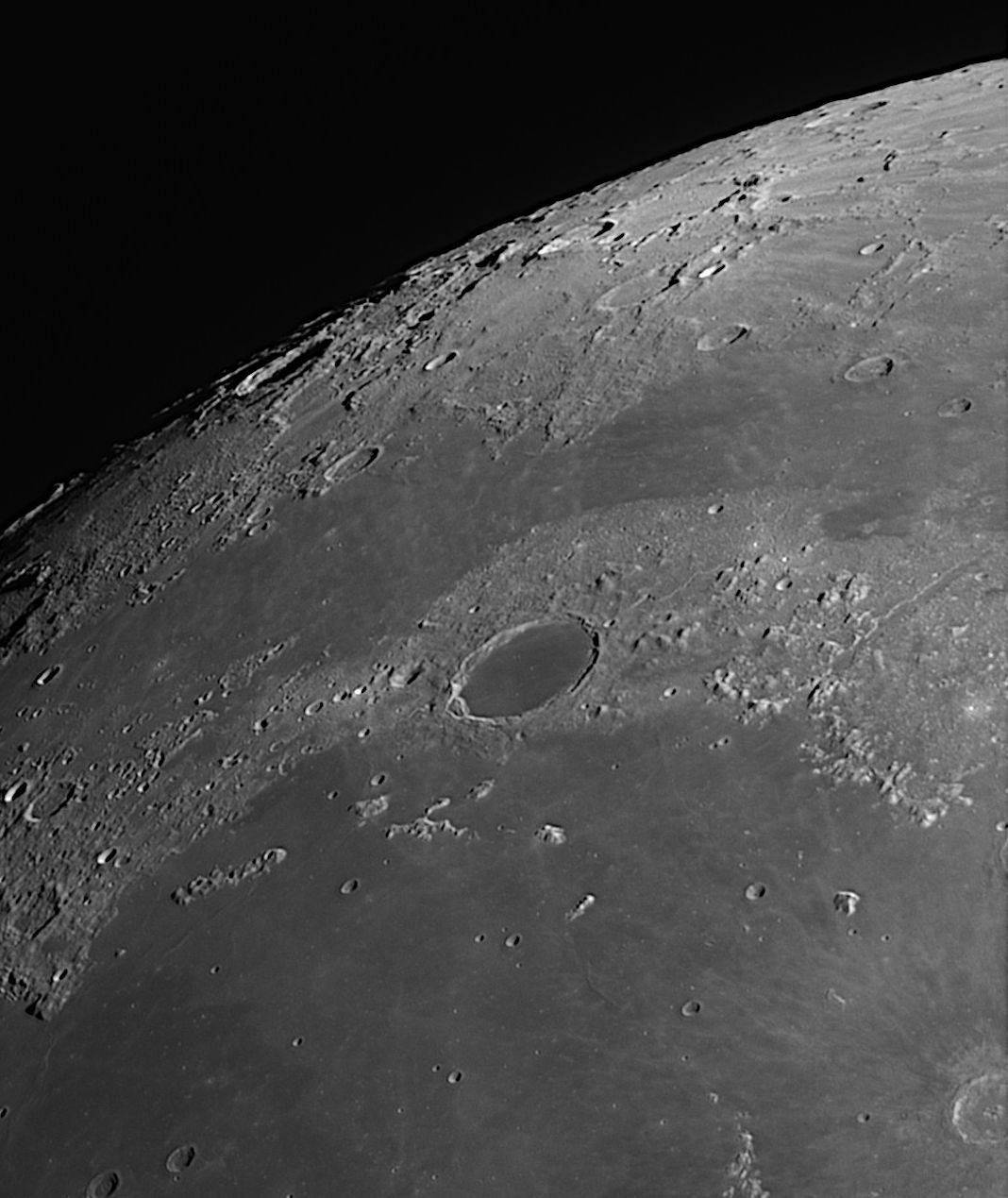
The crater Plato - click to expand
